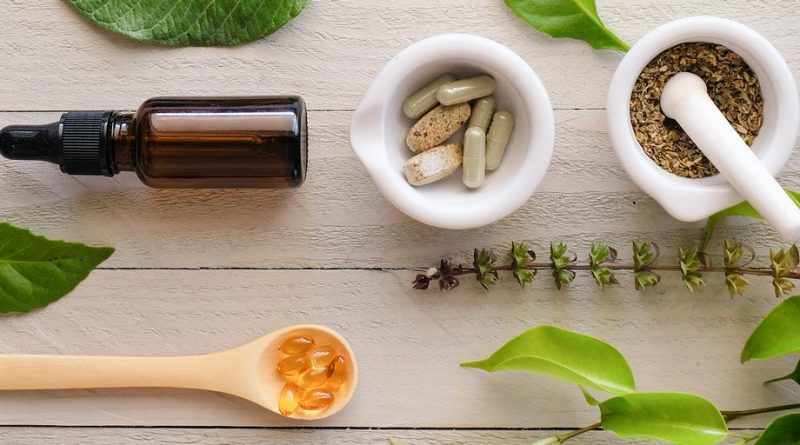Beauty Leans Into Health | The Business of Beauty, BoF Professional
LONDON, United Kingdom — Pre-pandemic, brands were in an arm’s race to explore the frontiers of wellness, whether it was bee venom, jade eggs or ingredients grown in a lab petri dish. The medical establishment’s disdain was treated almost as a badge of honour.
But in the middle of a global health crisis, doctor-endorsed products and nurse-administered treatments are more trendy than ever.
In many cases, the products for sale are no more effective than jade eggs. But the accelerated shift toward health-oriented wellness trends, is reshaping how beauty products are being developed and sold. New products are more likely to emphasise cleanliness, hygiene and disease prevention, said Irina Barbalova, global lead of health and beauty at Euromonitor International, as well as immunity-boosting abilities.
“Clinical is cool again,” said Alexia Inge, co-founder of Cult Beauty. “It’s associated with hygiene, and we’ve all become clean freaks during the pandemic.”
When the pandemic first hit, there was a rush from beauty brands like Glossier and Herbivore to produce hand sanitisers, a fail-safe pandemic-proof product. But it’s not just hygiene essentials like hand soap and sanitiser that will benefit.
Skin care is set to be the major pandemic category winner within beauty, forecast to hit $149 billion in sales in 2021, up from $140 billion in 2019, according to Euromonitor. LA-based Beautycounter’s skin-care launches have performed particularly well during the pandemic, the brand said, pointing to its new Vitamin C serum, which launched in May and sold through six months’ supply in less than three weeks.
“With immunity being such a huge topic, ‘skin immunity’ will also gain some traction,” said Barbalova.
Dermocosmetics, or skincare often prescribed by dermatologists and sold in pharmacies, is a particular bright spot. At L’Oréal, dermocosmetics, which includes brands like Vichy, La Roche Posay and Skinceuticals, was the only division at the beauty giant that saw positive growth in the first half of 2020.
Doctor-backed skincare brands were already a big business before the pandemic, with names like Barbara Sturm, Dr. Dennis Gross and Dr. Yannis Alexandrides’ 111SKIN seeing shoppers fork out hundreds of dollars for sheet masks and serums. But in a pandemic, uncertainty around the virus — what it does, how you catch it — has fuelled a heightened desire for products and services that tout scientific claims or expert advice.
Clinical is cool again. It’s associated with hygiene, and we’ve all become clean freaks during the pandemic.
Peachy Studio founder Carolyn Treasure uses medical research as a selling point at her wrinkle prevention beauty clinic, which uses a combination of botox, prescription retinoids and mineral sunscreen.
“It’s not uncommon that we actually pull up the journal studies and scientific literature to show people [during consultations],” Treasure said. Alongside its SPF and retinol skincare products, Peachy spotlights the nurses it employs to administer the botox and run client consultations in its marketing.
After a soft launch with a popup late last year, Treasure opened a permanent studio in New York in July, not long after the city emerged from the strictest phase of its lockdown. She plans to open a second Manhattan studio this year.
Beyond dermatology and doctor-endorsements, consumers are likely to pay more attention to the ingredients within their products, said Euromonitor’s Barbalova.
“Associations really come from health supplements or from foods,” she said, pointing to turmeric, vitamin C, probiotics and ginger as examples of ingredients consumers associate with having positive health credentials.
Already, a flurry of new direct-to-consumer brands have popped up over the past few months, doubling down on leveraging product claims in branding and marketing to appeal to shoppers. Bace tells visitors to its website to it’s “advocating for consumer health” by “involving clinicians and scientists.” Proper sells sleep supplements with the help of its scientific and medical advisory council. Inbloom, Kate Hudson’s new beauty venture, sells nutritional powders blended using whole foods and plants; shoppers can peruse an ingredients index before making a purchase.
Going forward, having some kind of stake in the wellness space will become increasingly important for newer beauty companies, said Barbalova.
“Beauty has always had inspiration from health,” she said. “[Because of the pandemic,] that will only be reinforced further.”
THIS WEEK IN BEAUTY
The Hut Group IPO Raises £1.9 billion ($2.4b). It gained the e-commerce technology group, which also owns a mix of beauty websites, beauty labels and wellness brands, a valuation of £6.1 billion.
John Boyega Quits Jo Malone Ambassador Role. Boyega’s resignation came after the fragrance brand apologised for cutting Boyega out of an ad that he starred in and directed when it was remade for the Chinese market. “I don’t have time for this nonsense,” he wrote on Twitter.
Michelle Obama Launches Lipstick to Get People to Vote. The former first lady teamed with beauty brand The Lip Bar in a bid to get people to the polls. Profits from the limited edition $15.40 product will go to non-profit organisation When We All Vote.
Mira Beauty raises $9 million. The beauty search engine and shopping site’s funding round was co-led by Unilever Ventures and 14W, which has also invested in Glossier and Goop.
Gwyneth Paltrow Lands Injectables Campaign. The actress is the first global brand ambassador for Merz Aesthetics’ Botox-rival product, Xeomin.
Peloton’s Founder Is Now a Billionaire. John Foley is riding the pandemic’s home fitness boom. Since mid-March, Peloton shares are up about 350 percent, seeing Foley’s net worth hit $1.3 billion.
Boots Reintroduces Testers In Store. The British drugstore, which has bold ambitions in the beauty retail space, is also putting brow treatments and makeovers back on the menu, despite coronavirus infection rates in the UK beginning to rise.


